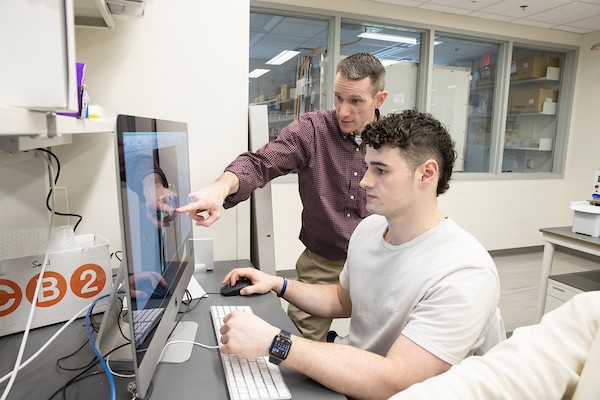
Biomedical Engineering and Biotechnology
Miami University’s Biomedical Engineering and Biotechnology research cluster leverages interdisciplinary collaboration to solve critical health and clinical challenges. Research spans from tissue engineering and biomaterials to wearable technology and health data analytics.
Labs and resources
The BioOpticalXplore (BOX) lab develops and translates photonics-based sensing and imaging technologies to address critical unmet clinical needs. By collaborating with biologists and clinicians, the lab seeks to deepen understanding of disease mechanisms. Its research emphasizes high-speed, high-resolution optical sensing and imaging devices, including optical coherence tomography, fluorescence imaging, adaptive optical imaging, and wearable devices. These efforts are strongly supported by the NIH and the Department of Defense.
The Bioengineering lab is located in Hughes Hall and is specifically dedicated to research on the controlled release and delivery of therapeutic agents, tissue engineering, and application of drug delivery systems. Hughes also has shared space with analytical equipment and office space for faculty, graduate students, and other research personnel as well as an iMac computer equipped with Osirix software and 3 PCs are available to laboratory personnel.
The lab contains a Reichert-Jun Ultracut E Ultramicrotome, a Reichert-Jun S Ultracut Microtome, and an AO Instruments Sliding Microtome for sectioning. It also has several pieces of equipment for Scanning Electron Microscopy, for Transmission Electron Microscopy, and for light/flourescence microscopy. The facility also maintains equipment for cryopreservation, photographic documentation, computer analysis, sample preparation, and image scanning and printing.
The biomedical optical sensing and imaging lab (OSMI) focuses on developing and translating sensing and imaging technology based on photonics to resolve clinical unmet needs and collaborating with biologists to understand the mechanisms of different diseases. The lab has focused on developing high-speed and high- resolution optical sensing and imaging devices including optical coherence tomography, adaptive optical imaging, fluorescence imaging, and fiber-based temperature sensing and is well supported by NIH and DOD.
The research focus of this lab is on 3D scaffold design for bone tissue engineering. The team has used finite element modeling, design of experiments, additive manufacturing, and hybrid processes to optimize these scaffolds, which were then seeded with pre-osteoblastic cells and human stem cells. This study has been funded by the National Institute of Health (NIH).
Faculty research projects
Faculty in this research cluster lead interdisciplinary research at the intersection of engineering, biology, and clinical practice. Select a faculty researcher below to learn more about their work and recent publications.
Garrett Goodman, Ph.D.
Designing a Wearable Ultrasound Vest for 3D Modeling the Heart in Real-Time
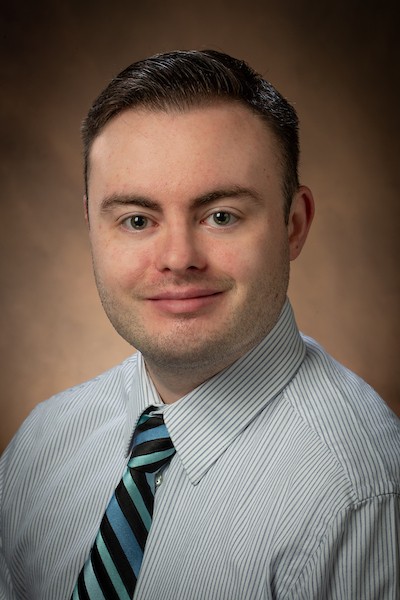
Quihou Zhou, Ph.D.
Biomedical Signal Analysis and Machine Learning
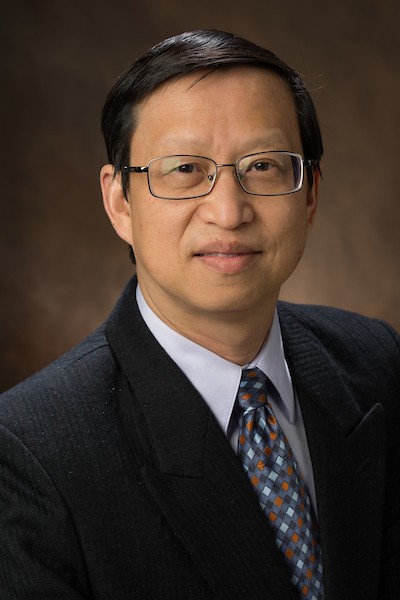
A. Zulal Sevkli, Ph.D.
Predicting Quality of Life for Lung Transplant Recipients
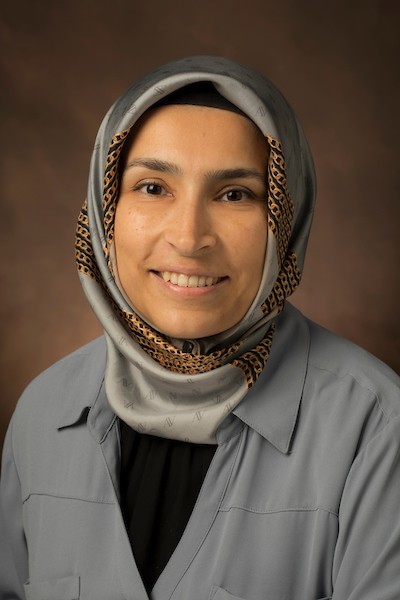
Amy Yousefi, Ph.D.
Cell-seeded Biomaterials for Bone Tissue Engineering
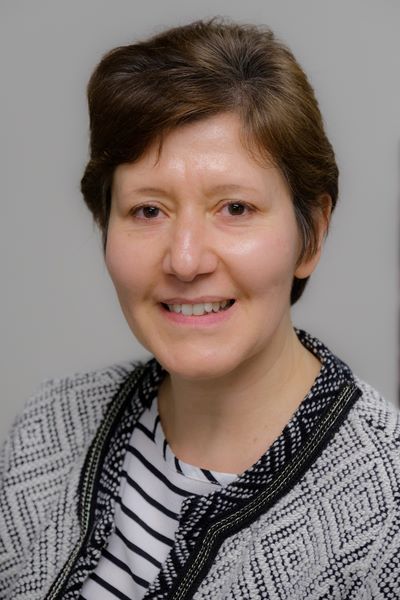
Justin Saul, Ph.D.
Cell-Mediated Hormone Therapy
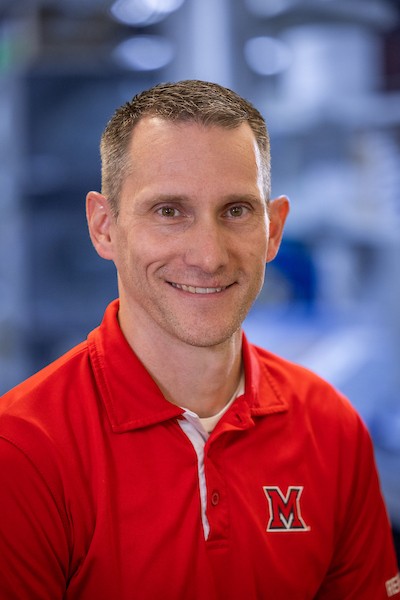
J. Andrew Jones, Ph.D.
Engineering the Biosynthesis of Psychedelic Medicines
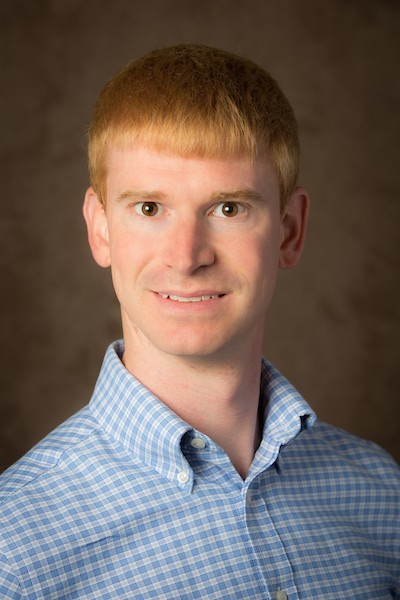
Hui Wang, Ph.D.
Field Scanning Optical Coherence Tomography for Retina
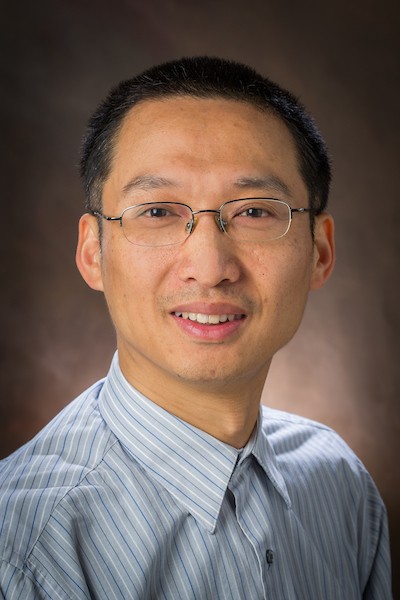
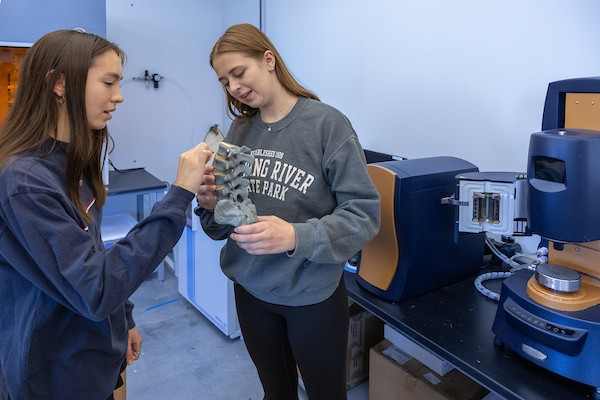
If your company is interested in benefiting from research opportunities and faculty expertise at the College of Engineering and Computing, please contact:
Jenni Szolwinski
Director of Industry Relations
Miami University
513-529-0702
You can also learn more about partnership opportunities by following the button below.
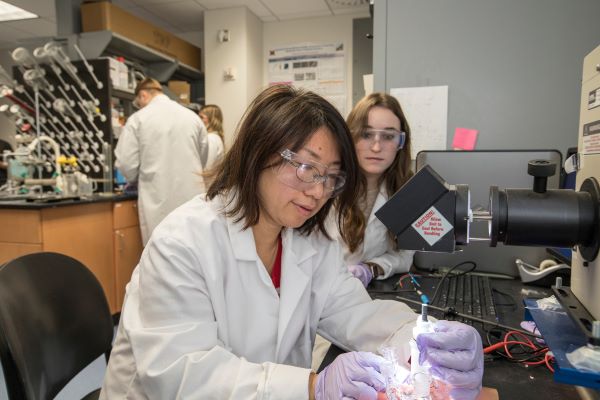
Below, you’ll find contact information for the faculty members involved in this research cluster. Feel free to reach out if you’d like to get involved as a student researcher!